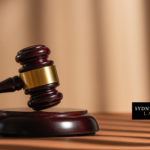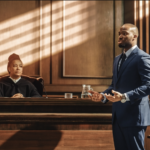Can Police Listen in When You Talk to your Lawyer?

The relationship between client and lawyer is usually considered to be a confidential one.
For a client to feel comfortable talking openly to their lawyer, it’s important that they know nobody else is listening in and that confidential information won’t be passed on by their lawyer to anyone else without their permission.
Police are not allowed to listen in to conversations between people who have been arrested or charged and their lawyers without a warrant, except in certain very specific circumstances.
As with other organisations and even members of the public, police are governed by laws stating that if a telephone conversation is going to be monitored or recorded, the people being monitored need to be informed beforehand.
If police officers have a warrant, they can legally listen to conversations or record them under certain circumstances.
The scope of a warrant generally doesn’t cover conversations between lawyers and a person who has been accused of a crime.
Although it can cover conversations which may lead to evidence that a person has, is, or will commit a crime and even those after arrest if it is believed that further crimes might be committed.
Can information that is overheard be used as evidence in court?
Communications between lawyers and their clients are protected under legal privilege and cannot normally be disclosed in court.
This means that any evidence obtained under those circumstances cannot usually be used against the accused in a trial.
Under Section 26A of the Evidence Act, there are certain types of communications that are considered privileged and are therefore protected.
These include where the confidant was acting in a professional capacity, and situations where the relationship between the two was such that it could be reasonably expected that the confidant wouldn’t disclose what they were told.
The lawyer/client relationship is one of these types of relationships, and therefore details of their communications are not usually acceptable as evidence.
When is it legal for police to listen to conversations between lawyers and clients?
Although it is generally not legal for police to listen in to the conversations between a lawyer and their client, if the client is the subject of a preventative detention order, it their communications will be monitored.
This includes the communications between them and their lawyer.
In a recent case where a man was placed on a preventative detention order, his lawyer wasn’t aware that their conversations were being monitored until the second conversation they had after the man’s detention.
The lawyer had not been informed that the man was under a preventative detention order, and had no way of finding out until the police provided him with the information before his second telephone conversation with his client.
The man was later released without being charged.
A breach of legal rights
This monitoring of conversations between lawyers and clients has raised a number of concerns, even though evidence obtained through listening cannot normally be used in court.
The Australian Lawyers Alliance labelled the ability of police to listen in to communications between lawyers and clients “outrageous”.
There are a number of important reasons why the integrity of the lawyer/client relationship should be preserved, many of which have nothing to do with the evidence that is used in court.
Listening in to conversations between lawyer and client could be described as a breach of the legal rights of the person being detained.
It is extremely concerning that police could have the means to legally monitor conversations between lawyers and clients without informing them that this monitoring is taking place.
Preventative detention orders have not been used until recently, which means that people are not aware of how they work and may not realise that monitoring of their communications is taking place.
The wider implications of recording these communications
The lawyer client relationship is essential to client confidence and security, and it should be preserved.
Undermining this relationship by monitoring conversations could seriously impact the ability of those accused of a crime to defend themselves effectively and get a fair outcome in court.
This is because clients who know that they are, or may be, monitored by police are not likely to speak openly to their lawyers and, consequently, their lawyers will not be able to give them the best advice for their specific situation.
Lawyers may also be unable to obtain sufficient information to fight for the person’s charges to be dropped or thrown out of court.
Sadly, the erosion of client legal privilege is yet another way that fundamental protections are being summarily discarded in our increasingly conservative society.






